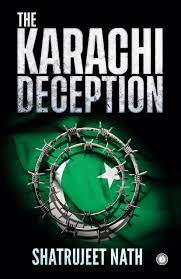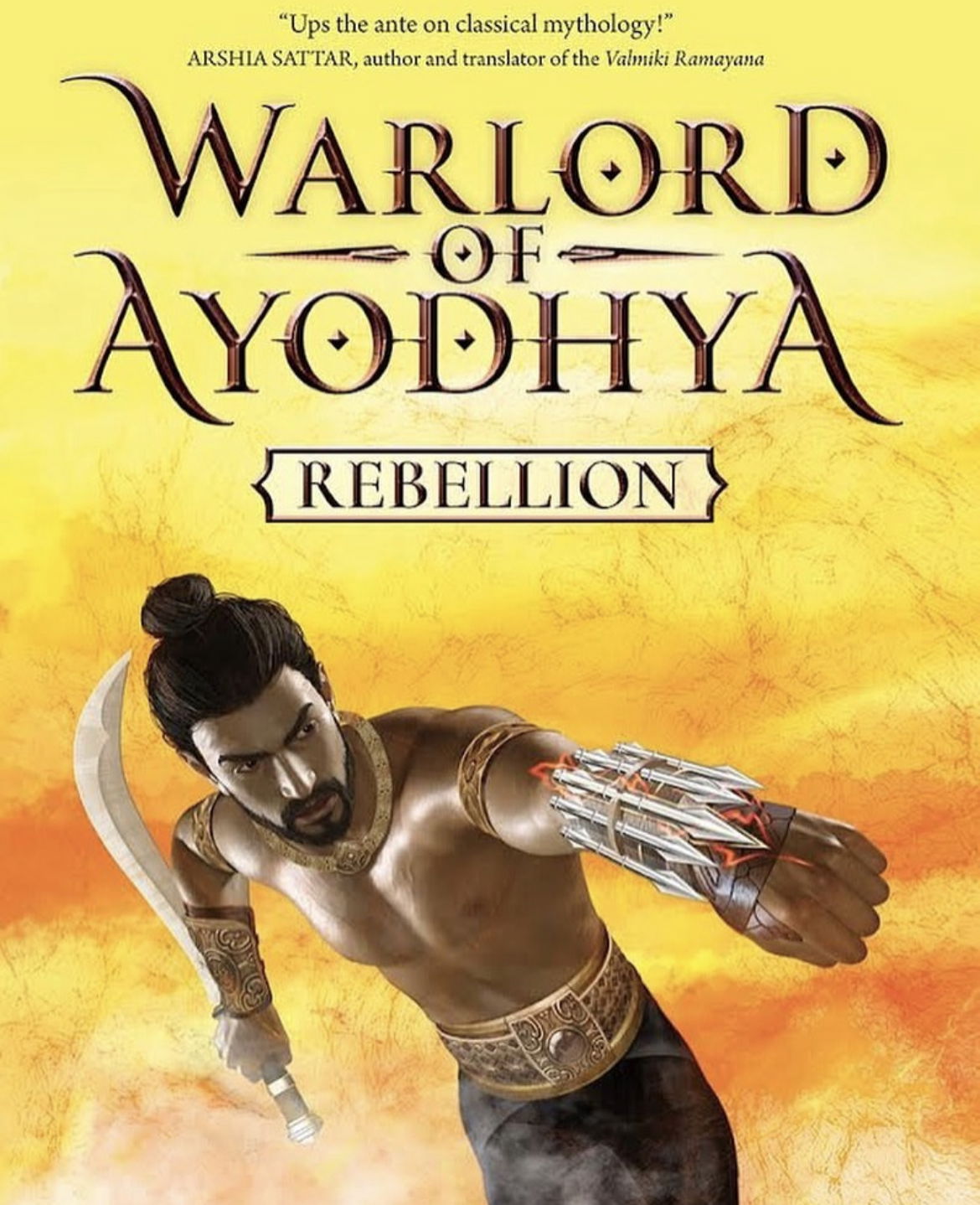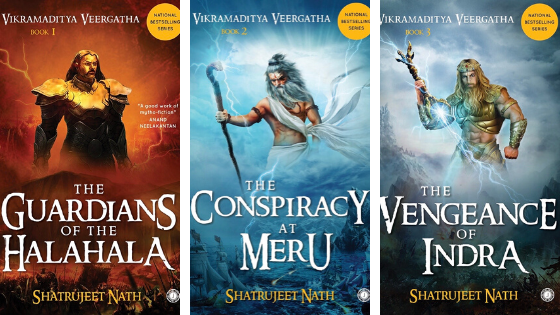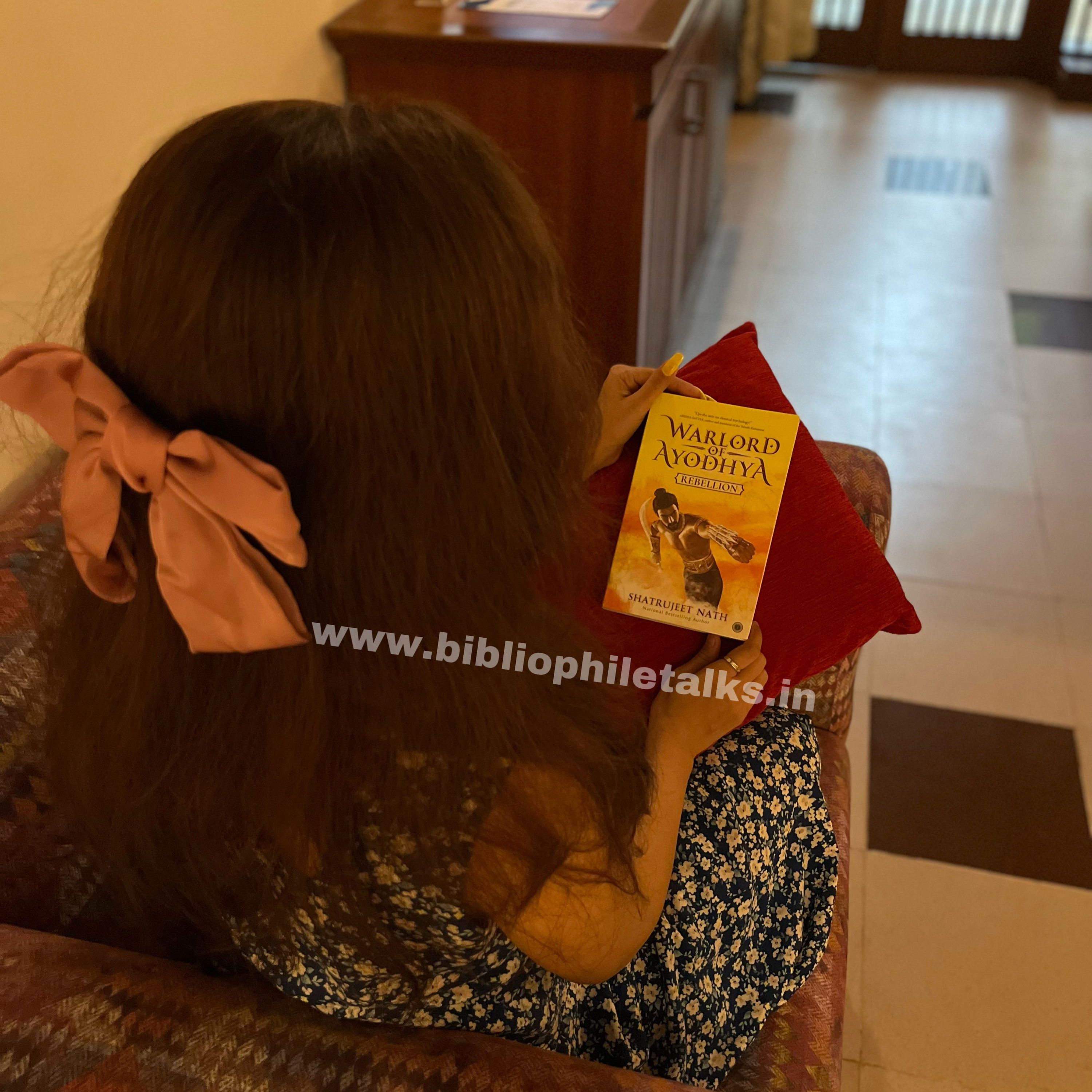Interview with Author Shatrujeet Nath: Exploring Thrilling Worlds of Fiction and Mythology
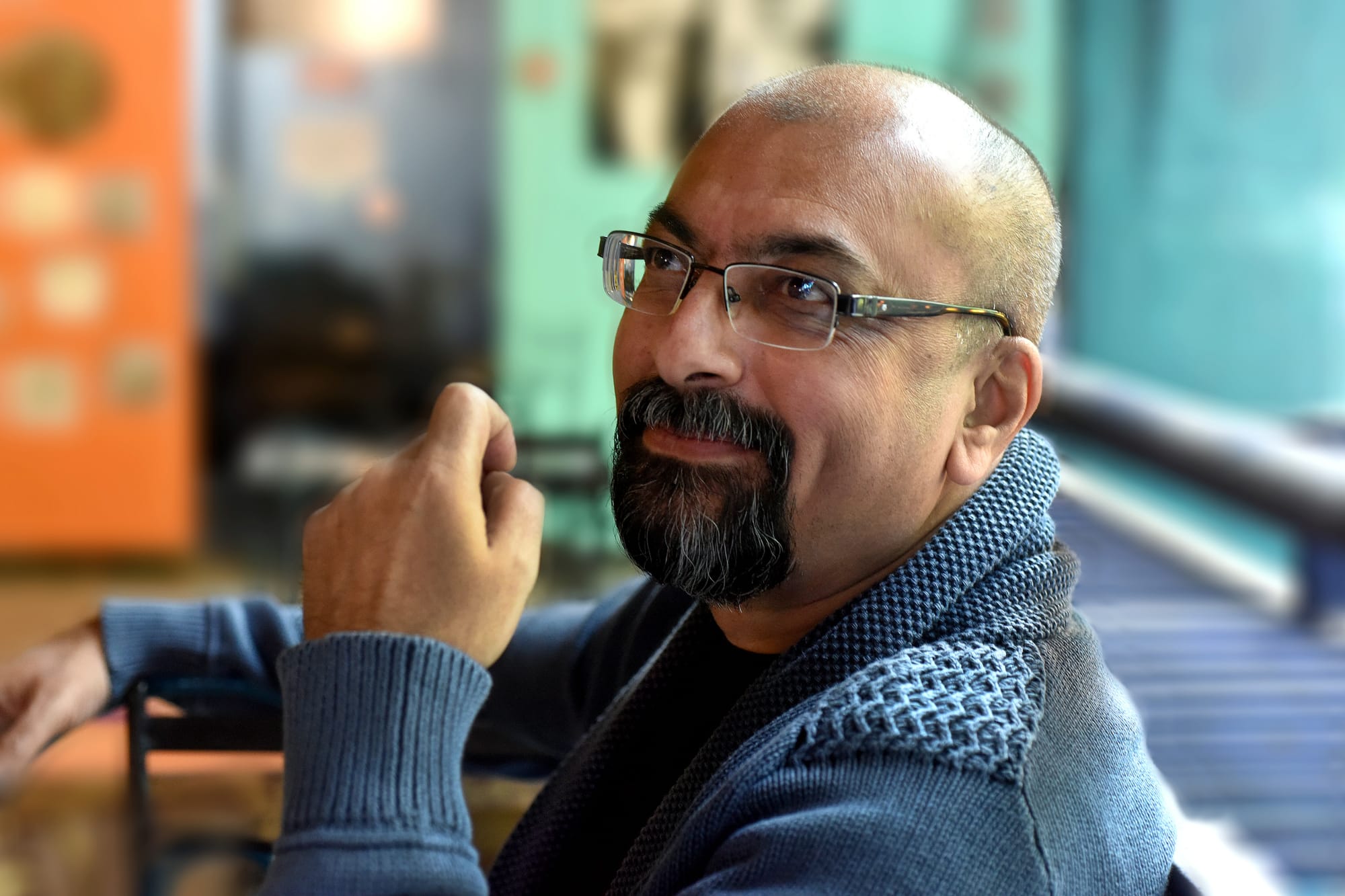
Ex-journalist and former assistant editor at The Economic Times, Shatrujeet Nath is a versatile author known for his gripping narratives that traverse the realms of espionage, epic fantasy, and Indian mythology. With a career that has seamlessly transitioned from journalism to the world of storytelling, Shatrujeet has left an indelible mark on the literary landscape.
Shatrujeet burst onto the literary scene with his debut novel, "The Karachi Deception," a thrilling spy thriller that showcased his prowess for crafting high-stakes, adrenaline-pumping narratives. This foray into the world of espionage served as a precursor to his illustrious career as a novelist.
His crowning achievement, the national bestselling epic fantasy series, "Vikramaditya Veergatha," has captivated readers with its enchanting blend of ancient Indian mythology, history, and relentless adventure. This remarkable series comprises four enchanting books: "The Guardians of the Halahala," "The Conspiracy at Meru," "The Vengeance of Indra," and "The Wrath of the Hellfires." Shatrujeet's masterful storytelling and meticulous research have earned him acclaim as a visionary in the realm of Indian epic fantasy.
In his current work, "Warlord of Ayodhya," Shatrujeet embarks on a new literary odyssey, exploring the intriguing narrative of Bharat's 14-year rule over Ayodhya during Rama's exile. This three-book series delves deep into the heart of Indian mythology, offering readers a fresh perspective on age-old tales and legends. His imaginative storytelling has been hailed as "a new face to Indian mythology" by DNA, further solidifying his status as a prominent figure in the genre.
Beyond the realm of novels, Shatrujeet's creative prowess extends to the world of cinema and web shows. His talent for weaving captivating narratives transcends the written word, making him a sought-after contributor to the world of visual storytelling.
Shatrujeet Nath's literary journey is a testament to his ability to seamlessly blend genres, breathe life into ancient tales, and create worlds that leave readers spellbound. With each new work, he continues to push the boundaries of storytelling, captivating audiences and cementing his place as a versatile and visionary author. Explore the worlds he crafts, and embark on unforgettable journeys that will keep you on the edge of your seat. Get ready to uncover the secrets of storytelling in a bygone era with Mr. Nath.
1. At what point did you decide to be an author and what was your path to publication?
A. My writing career started in the mid-1990s in the advertising industry as a copywriter, and later, in the late 1990s, I switched tracks to become a business journalist. I had been in journalism for over a decade when, sometime in 2008, I began to tired of journalism and wanted to try my hand at writing fiction, though back then my intention was never to become an author. What I really wanted to do was write a film script out of a story I had in mind and take it to Aamir Khan in the hope that he would agree to play the lead character’s role. I quit journalism in 2009 and sat down to write this script, but as back in those days I had no idea how scripts were written, I ended up writing the story in the only form I was familiar with – in the form of a novel. And once it was written like a novel, I decided to let it be and publish it as it was. That is how The Karachi Deception was published in early 2013, launching my career as an author.
2. Please tell us what you enjoy most about writing. What is your favourite part of being a writer?
A. The part I enjoy most about the writing process actually involves very little writing – the plotting or ‘thinking’ phase. This is the phase when you start working on an idea and slowly build it up from its foundations. This is the stage when the story is nothing more than an idea and maybe a paragraph or two on paper. This is when the writer starts adding muscle and tissue to the skeletal idea by developing plots and subplots, conceiving characters, creating backstories, developing plot and character arcs, building in dramatic tension, putting in beats and twists, investing in world-building… This is the part where you give the idea shape and direction, moving the story forward from its beginning to its end. This is the stage where anything is possible in the story and all ideas are welcome. I am like a kid in a candy shop when it comes to plotting. So many candies, so many plots and possibilities. I become mad with excitement at the number of possibilities unfolding before me. If I had my way, I would love to just plot and plot and plot stories and hand over the responsibility of writing them out to someone else.
3. What have you found to be most challenging about writing?
A. The actual writing. Don’t get me wrong – I love the writing part as well. But it is challenging because, unlike the plotting phase that I just spoke about, the writing phase is all about focus. See, one can go wherever one pleases in the plotting stage. The best example I can think of right away is hunting. When you set out on a hunt, you have to explore the width of the forest to locate your prey. You have to climb hills, go into valleys, enter caves… But once you have found your prey, you have to follow the straight line set by your prey. You can’t afford to deviate from that line. It is your only hope of catching your prey. Similarly, once you’ve done the plotting and the storyline has been found, you can only go in one direction during the writing process – forward – driving the story from its beginning to its conclusion. That is what I meant by focus. The purpose of every sentence, every paragraph, every scene, and every chapter is to drive the story forward. This is a very challenging task.
4. What do you like to do when you’re not writing?
A. I read. I watch web shows. And when I get the time, I travel.
5. What is your real-life work schedule like when writing? How many hours a day do you write?
A. I am a full-time writer, which means I write to earn a living. I write books, and I write for web shows and films. And right now, I am in the middle of developing a story for a video game. What I’m trying to say is writing is my full-time job. I follow a strict regimen while I’m writing my books. I usually start in the mornings by 10 and try to write through the day. I treat it like a 10-to-6 job. It’s a bit different when I am writing commissioned shows or movies, though. In those cases, the deliverable dictates when I write. But just so you know, writing is a 24x7 job. Through most of your waking hours, you are writing in your head. Plotting arcs, creating conflicts, building drama, sharpening dialogues. Writing isn’t only about sitting down with your word processor… though without that sitting down, none of the thinking and plotting that happened before will be of any use.
6. Where do you get your ideas for your books?
A. Ideas are all around us. None of us actually come up with ideas. We see, we observe and we analyze. And suddenly through an act of mental alchemy, a possibility of a story or plot idea emerges. Then we work on it until that idea takes clear shape and direction. Let me give you an example. As observers of life, we know that human beings need energy in the form of electricity to lead a comfortable life and that this energy is generated in power plants where decent, hardworking people work. As observers of life, we also know that children are always scared that there are monsters under their beds. Some bright minds saw potential in these two observations. So they created a fictitious city where decent, hardworking monsters work in a power plant to generate energy for the city – and that energy comes from the terrified screams of the children that the monsters scare at night. And thus, the core premise of Pixar’s Monsters, Inc. is born. And what a fantastic idea that was. Similarly, my Warlord of Ayodhya story was born from my observations of life. My first observation was that while the Ramayana was the story of four brothers, in reality, it is the story of only two brothers, Rama and Lakshmana. The Ramayana tells us practically nothing about the other two brothers, Bharat and Shatrughna. My other observation of life was that people struggle to adapt to sudden change, especially when great responsibility is suddenly thrust on them. This is what happens to Bharat when he is told that he has to rule Kosala in the absence of Rama. So the Warlord of Ayodhya series is an attempt to tell a thrilling story about the forgotten and overlooked brothers in the Ramayana, while also looking at how people shoulder responsibility and become the masters of their fate.
7. What makes a great story?
A. A great idea. A unique plot. And great, memorable characters whom people can root for. Every story must have at least two of these three attributes for it to resonate with readers or viewers.
8. What kind of research do you do, and how long do you spend researching before beginning a book?
A. It all depends on the kind of one is writing. When I wrote The Karachi Deception, I spent a lot of time researching intelligence agencies and Pakistan and weapons. This was because that book was a contemporary spy thriller. When I wrote the Vikramaditya Veergatha books, I spent time researching the backstories of the devas and the asuras, and I read up a lot on our mythical monsters. Now, while writing Warlord of Ayodhya, I read the Ramayana where necessary, though it is not much, I confess. Ultimately, the whole point of research is to help you make your story world believable to readers.
9. Share some of your favorite books with our readers.
A. There are hundreds of books that I can recommend. And sadly, once I start making a list, I am certain I will miss out on some really great ones. But very quickly, right off the top of my mind, some books that I loved reading include Treasure Island, Around the World in Eighty Days, The Day of the Jackal, The Spy Who Came in from the Cold, The Shining, Perdido Street Station, The Devotion of Suspect X, Needful Things, Something Wicked This Way Comes, Black Water Lilies… oh, there are so many. I am certain I have missed so many good ones and that is so unfair.
10. Do you read your book reviews? How do you deal with bad or good ones?
A. I do read reviews of my books. I feel very pleased with the good reviews, of course, but I feel happiest when the reviews are meaningful. I mean a review that says ‘Great book’ is nice, but it tells me nothing about what the reader liked in the story. I prefer reviews that give me a reading of the reader’s mind. What in the book worked for them and why – that’s what I am interested in. When it comes to bad reviews… well, I feel bad about them for a while, but then I move on. And I tell myself that even big, bestselling authors like Dan Brown and GRR Martin have tons of bad reviews. So I am in good company. See, when you put yourself out in public, you have to be prepared for criticism. It will hurt, yes. If you can’t take it, you should stay out of the public gaze.
11. Do you try more to be original or to deliver to readers what they want?
A. I would always go for originality. When I wrote the Vikramaditya Veergatha series, the books were full of epic-scale action and war scenes as the plot was about a three-way conflict between the devas, the asuras and mankind. My readers loved that, and I know they want more of the same. So when I conceived the Warlord of Ayodhya books, I had the option of putting in big action scenes. But that is not what that story was about. Warlord of Ayodhya is a more character-led story about Bharat. Yes, it has action and war, but not in the Vikramaditya scale in the first two books. There is an epic battle coming up in Book 3, though. But putting big action scenes into the first two books would have been wrong. One must be true to the story. And good readers appreciate that. Fortunately, the vast majority of my readers fall into that category.
12. Correct me if I’m mistaken, but it appears that all of your literary works fall within the realm of mythology fiction. I had the pleasure of reading Warlord Ayodhya: Rebellion, and I must say, I thoroughly enjoyed it. Would you be willing to enlighten us about the inspirations and motivations that led you to choose this particular genre for your writing?
A. As I said above, my first book was a contemporary spy thriller. But yes, the ones after that have been set in the realm of mythology fiction. I am glad you enjoyed reading Warlord of Ayodhya: Rebellion so much. It will please you to know that the second book in the series, Warlord of Ayodhya: Resurrection is up for release in a month or two. To answer your question on why I choose to write mythological fantasy… I like Indian mythology, and I also like Western high fantasy. So I try to merge the two in my books. But I must add that I want to explore other genres. I have a plot for a dark, psychological horror novel, and also one for another contemporary thriller. I also would like to try writing historical fiction someday.
13. What might your next book be about? Is this the sequel to the Warlord of Ayodhya series?
A. Yes, as I said, it is the second book in the Warlord of Ayodhya series. It begins where Book 1 ended and we follow Bharat’s journey as ruler of Kosala, even as all his various enemies plot and plan to overthrow him for their own ends. The biggest question is how will Bharat survive so many threats from so many fronts. I enjoyed writing the book, and it is my belief that readers will enjoy reading it.
14. Share some advice for aspiring authors.
A. The difference between wanting to write and having written is one year of hard, relentless labour. It is a bridge you have to build all by yourself, all alone, all through the night, while the world goes about its business without giving a damn. The only way of making this perilous passage is by looking at it as a pilgrimage.
I'd like to express my heartfelt gratitude for the time you've generously shared with me. Our discussion about your journey as an author and your upcoming book, "Warlord of Ayodhya: Resurrection," has been truly remarkable. I'm also intrigued by the prospect of your psychological horror novel—it sounds captivating.
Your extensive research in the realms of mythology and thriller genres shines brilliantly in all of your books. Your work has ignited my enthusiasm and left me thoroughly impressed.
As you venture into future literary endeavours, please accept my best wishes. I am confident that your unique perspective and storytelling prowess will continue to enthral and impact readers, just as it has for me. Your contributions to the literary world are destined to leave an indelible mark.
Once again, I want to convey my deep appreciation for your invaluable insights and for graciously dedicating your time to engage in this enlightening conversation. Thank you.

Connect With Author Shatrujeet Nath:
Instagram: https://www.instagram.com/shatrujeetnath/
Facebook: https://www.
